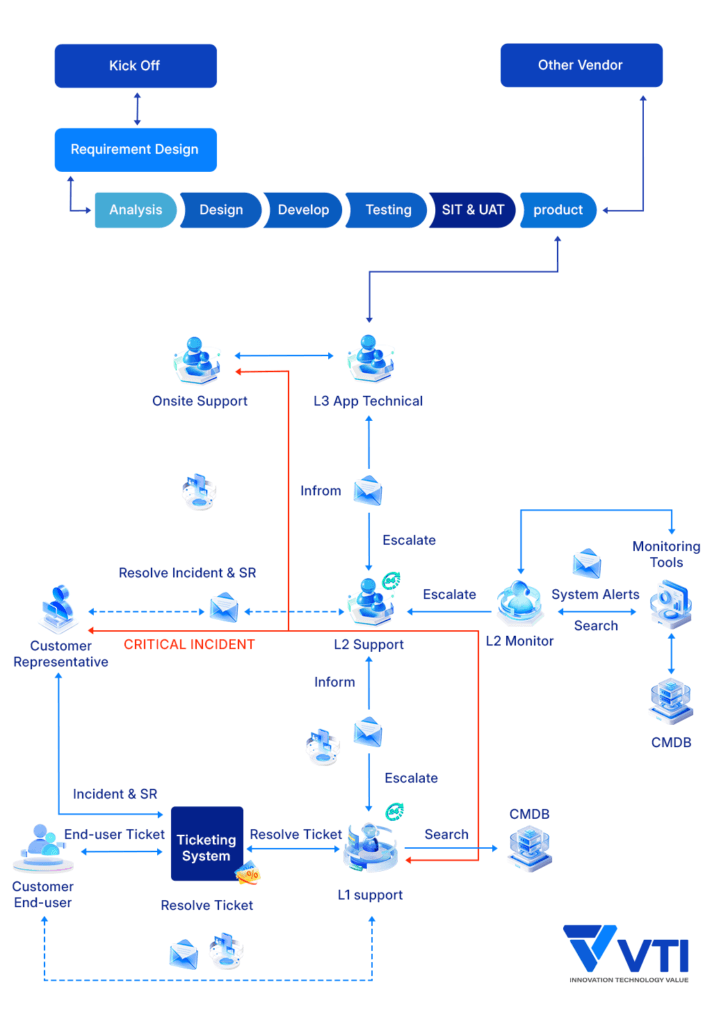Why Managed IT Services Matter
More than 70% of IT operations data goes unused due to fragmented tooling (Gartner). As environments expand and become more distributed, teams face rising noise, visibility gaps, and mounting pressure to maintain always-on reliability. Traditional models can’t keep pace. These challenges explain why more enterprises rely on modern IT managed services to stabilize operations and scale efficiently.
Visibility gaps
Hybrid and multi-cloud environments create blind spots that weaken early detection. Without unified observability, teams struggle to correlate logs, metrics, and events, allowing issues to escalate unnoticed and increasing operational risk.
Rising operational noise
Disconnected tools and constant alerts overload teams, burying real incidents under false positives. This slows triage, delays response times, and forces engineers to spend more effort filtering noise than resolving core issues.
Limited capacity
Legacy workflows and fragmented tooling limit how much internal teams can handle as systems scale. Skill gaps in cloud, automation, and security slow down delivery, forcing teams into reactive firefighting instead of strategic improvement.
Increasing reliability expectations
Users and stakeholders now expect always-on services with zero tolerance for downtime. Even minor disruptions impact revenue and trust, raising pressure on IT teams to maintain consistent performance across increasingly complex environments.
![[FREE EBOOK] Strategic Vietnam IT Outsourcing: Optimizing Cost and Workforce Efficiency](https://vti.com.vn/wp-content/uploads/2023/08/cover-mockup_ebook-it-outsourcing-20230331111004-ynxdn-1.png)
























